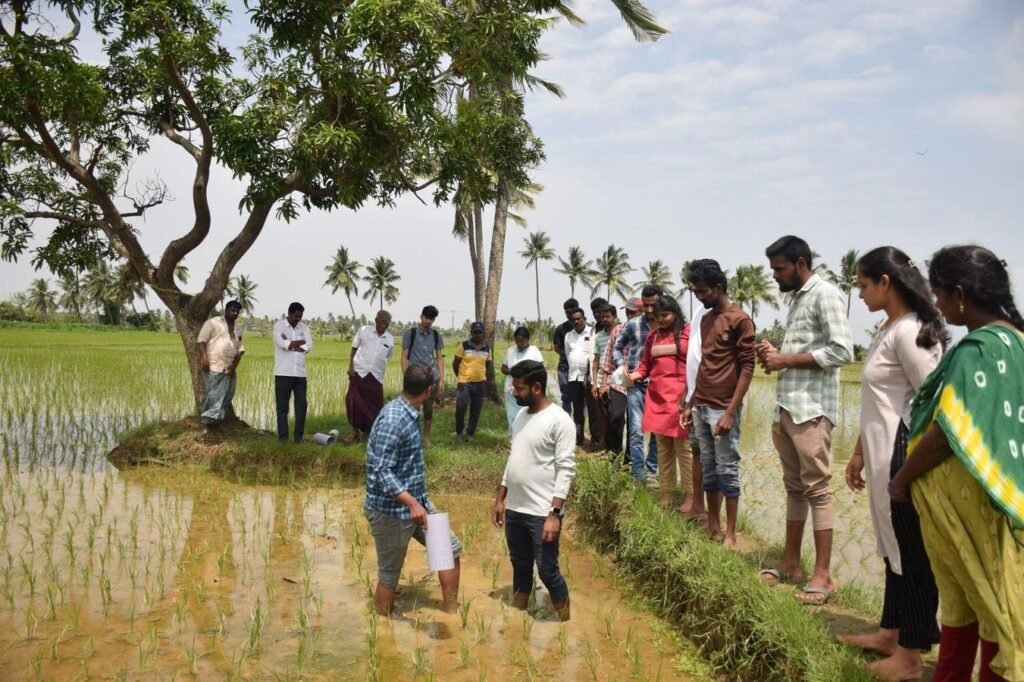A team of researchers at the US-based startup Mitti Labs is utilizing computer modelling to provide farmers in India with the best advice to enhance their rice crops while also reducing inputs and emissions. Rice cultivation is responsible for about 8 percent of all agricultural greenhouse emissions and utilizes about 24 to 30 percent of the world’s freshwater resources. For farmers to minimize emissions, they must find the appropriate balance between water usage, nitrogen application, and sowing practices. Field studies are crucial but can be challenging due to diverse rice fields and agroecologies, making remote sensing and modelling tools vital for efficiently evaluating large areas without extensive field data.
Ishan Ajmera, a researcher and modelling specialist at Mitti Labs, highlights the importance of collecting field data such as soil properties, management practices, and crop growth stages to inform the model. By incorporating remote sensing imagery, these models transform into powerful tools for monitoring and validating the impact of different interventions on greenhouse gas emissions. However, processing power remains a challenge for computationally intensive projects, especially with the complexity of rice root systems. The startup aims to train farmers in new agricultural techniques that reduce water and methane intensity in traditional rice farming, helping them adapt to changing climate conditions and potentially earn carbon credits.
Born and raised in suburban Mumbai, India, Ajmera was inspired to pursue a career in systems biology and modelling during his undergraduate studies. He emphasizes the importance of bridging the gap between academia and industry in the Global South to translate research into practical applications. Leveraging his training at top northern institutions, Ajmera aims to address global challenges such as food security and climate change. Through his work at Mitti Labs, he is developing solutions that directly benefit his community, demonstrating the impact of global-to-local knowledge exchange in fostering innovation.
Meanwhile, in South Asia, researcher Asif Ishtiaque, originally from Bangladesh and now an assistant professor at Missouri State University, is studying agricultural practices aimed at reducing carbon emissions in farms. Despite the potential of climate-smart agriculture (CSA) to improve food security in the region, adoption rates of CSA practices and technologies have been low. Ishtiaque notes that previous studies have been limited in scope, with a need to view the issue as a regional problem particularly in regions with limited arable land. Climate-smart agriculture encompasses practices and technologies designed to address climate change challenges in the agricultural sector while promoting sustainability and resilience.
The agricultural sector contributes significantly to greenhouse gas emissions globally, impacting food security for millions of people across the world. Farming practices must adapt to climate change by integrating climate-smart agriculture practices and technologies to mitigate emissions and enhance sustainability. By leveraging advanced technologies and expertise, researchers like Ajmera and Ishtiaque are working towards developing solutions that benefit farmers in India and South Asia. Bridging the gap between academia and industry in the Global South is crucial for translating research into practical applications and fostering impactful innovation to address pressing global challenges.

